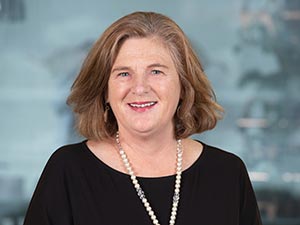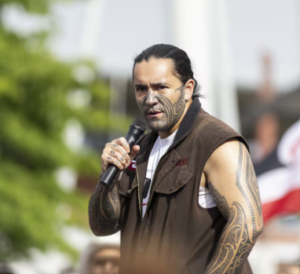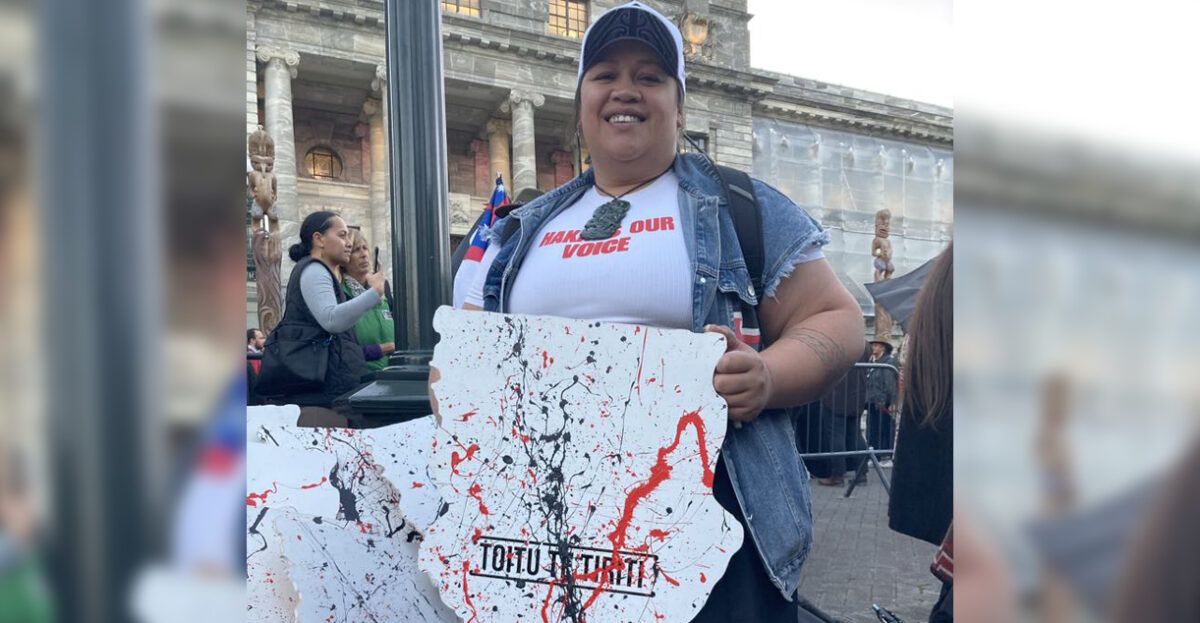
The Government claims the bill would “reduce the amount of unnecessary and poor-quality regulation by increasing transparency and making it clearer where legislation does not meet standards”.
But Luke Wigram, an NZNO member based in Akaroa, said the bill, which was tabled in Parliament last night, would be detrimental to the way the country has been run and to the quality and safety of existing regulations, including nurse and health-related regulations.
“The bill if made a law will give the Government more power than ever before to play with our profession as nurses, even though most of its ministers have no idea at all about what our jobs involve,” he said.
‘It will give the Government more power than ever before to play with our profession as nurses.’
“This bill will reduce the powers of the Nursing Council to determine what’s appropriate. And likely silence or delete important knowledge and skills like cultural competency in our code of conduct,” Wigram said.
The Nursing Council is the regulatory authority responsible for the registration of nurses. Its primary function is to protect the health and safety of members of the public by ensuring that nurses are competent and fit to practice.

In a statement, the council told Kaitiaki that it was currently revising its code of conduct, which all registered nurses are required to uphold, which would go out for consultation later in the year.
“The code of conduct is already scrutinised by the Regulations Review Committee and may be disallowed by the House of Representatives.”
The council’s main concern was that the focus of the principles in the bill was “narrow in nature” with an emphasis on property rights, individual freedoms and liberties.
‘I’m here as a Māori nurse and wahine.’
“As the primary function of the Nursing Council is to protect the health and safety of the public, we believe that having such prescribed principles could conflict with our key purpose and would likely cause some contention. For example, when considering the individual freedoms and liberties of a nurse, versus the impact on public safety,” the statement said.
The council is also concerned with the proposed creation of a Regulatory Standards Board, as a mechanism for addressing legislation deemed inconsistent with the principles outlined in the proposed bill.

“While it is vital that regulation meets the standards required, the proposed board would sit outside the judiciary and provide non-binding recommendations, bringing into question the associated costs and effectiveness of this approach.”
The council is one of 18 regulatory bodies in the country — another is the Medical Council.
One of its members, emergency doctor Gary Payinda, described the bill as a “power grab over doctors’ and nurses’ councils”.
“This will give Government the power to break down our professions – nurses, doctors, physiotherapists, paramedics, dentists and others. These groups currently have the ability to regulate themselves and discipline themselves within certain bounds. Now Ministers want to interfere,” Payinda said.
‘This is very much down the Donald Trump playbook – having the ability to interfere with professions that can regulate themselves.’
“So, if the Medical Council interviews a doctor, assesses them, and finds they are a danger so turns them down, a minister can then over-rule that council’s decision. This is very much down the Donald Trump playbook – having the ability to interfere with professions that can regulate themselves.”
A rally was held May 20 at Parliament by Toitū te Tiriti – the group which led the largest march in the history of this country last year, to oppose the Principles of the Treaty of Waitangi Bill. The rally heard from Māori lawyer Tania Waikato who described the Regulatory Standards Bill as the “Principles of the Treaty of Waitangi Bill – Number 2.”
Auckland-based nurse Rangi Blackmore-Tufi talks haka, Regulatory Standards Bill and pay equity at the steps of Parliament during the Toitū te Haka rally on May 20.
Just last week the Waitangi Tribunal called for the Regulatory Standards Bill to be halted until the Government consults with Māori.
Auckland nurse Rangi Tufi-Blackmore told Kaitiaki it was nice to see so many workers and unions turn out in support of those impacted by the proposed changes to Government regulation including Māori and health professionals. The mass cancellation of 33 pay equity claims was also a huge issue for women, health workers and Māori, she said.
“So I’m here as a Māori nurse and wahine,” said Tufi-Blackmore, who travelled from Auckland for the protest.
The rally was primarily about Parliament’s Privileges’ Committee punishing suspensions of Te Pāti Māori MP Hana-Rāwhiti Maipi-Clarke and co-leaders Rawiri Waititi and Debbie Ngārewa-Packer for performing a haka in Parliament during the reading of the now-dumped Treaty Principles Bill in November.
Protest organiser Toitū te Tiriti spokesperson Eru Kapa-Kingi said they were being punished for exercising tikanga Māori.

Māori health leader Lady Tureiti Moxon told Radio NZ that the bill posed a serious constitutional threat to Māori rights and Te Tiriti o Waitangi.
“The Waitangi Tribunal has confirmed what many of us have been saying: that this coalition government is using its unbridled power to the detriment of our nation.
“It has calculatingly sidelined Māori, purposely ignored its Treaty obligations, and is pushing forward with legislation that could undermine areas from health equity to tino rangatiratanga.”
The bill comes at a time the Government is also proposing to cut back on health workforce regulation with changes to the 2003 Health Practitioners Competency Assurance Act – something health unions, including NZNO, and the Nursing Council have warned would risk patient safety.



